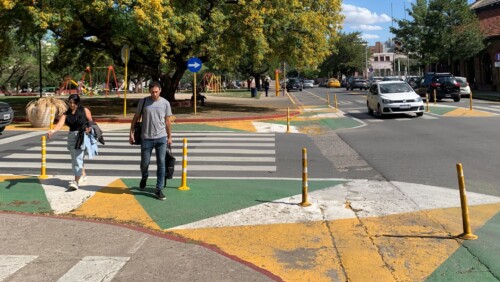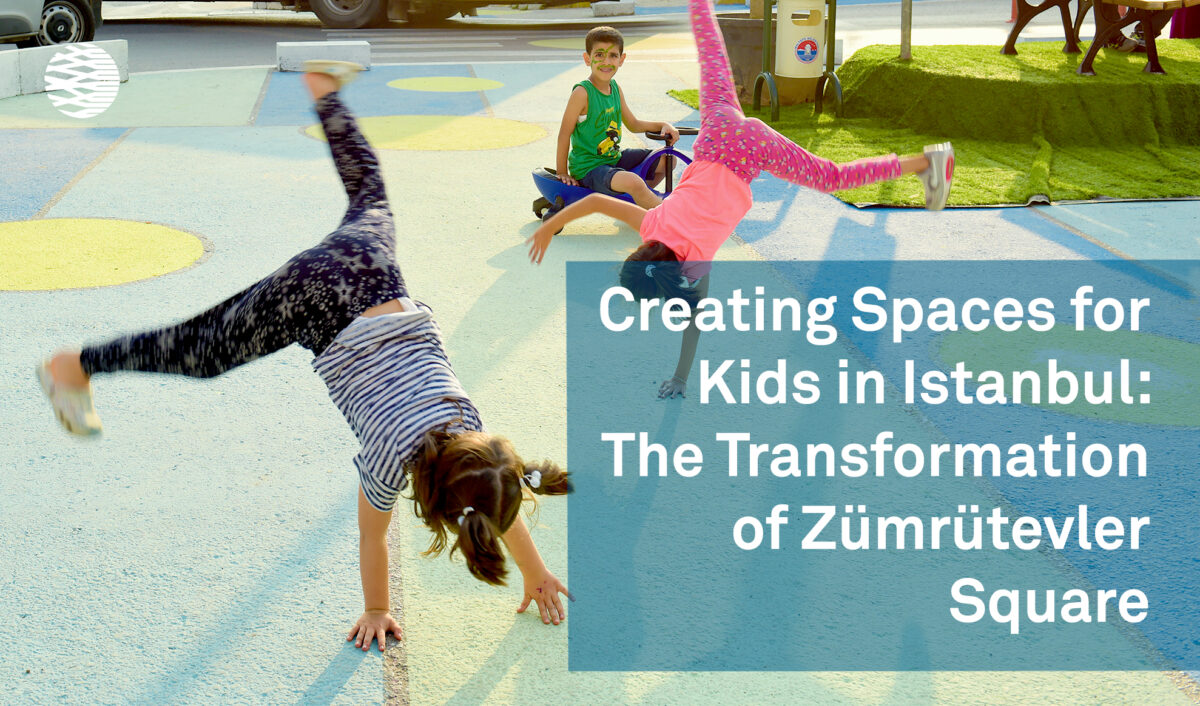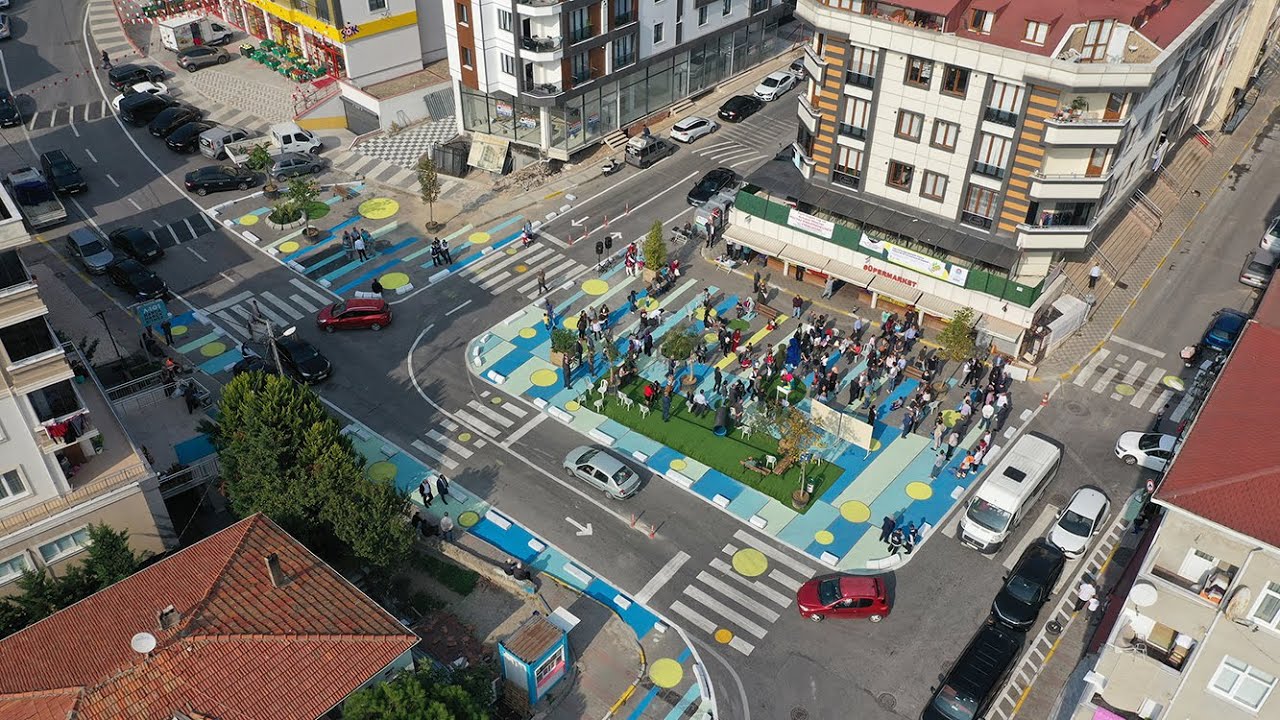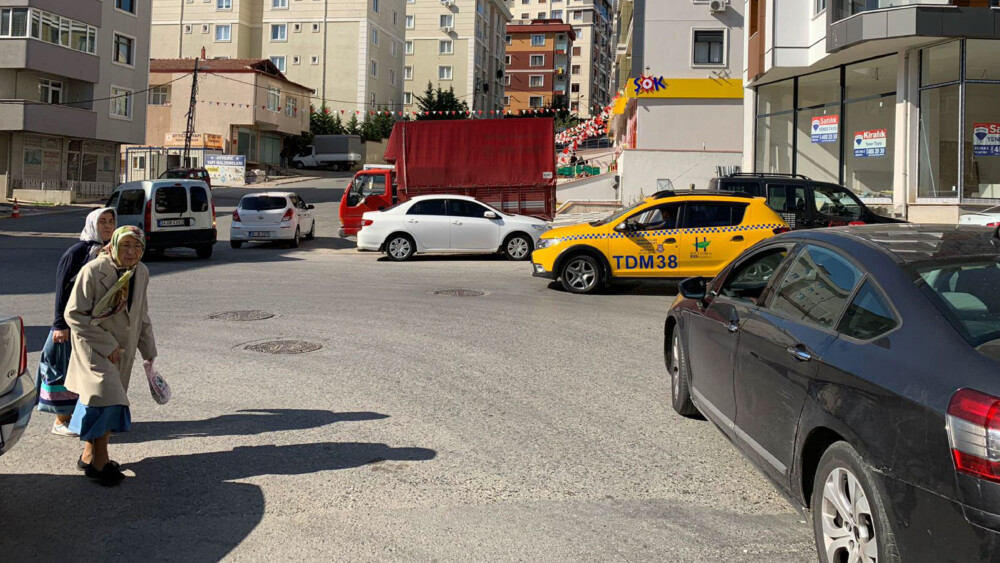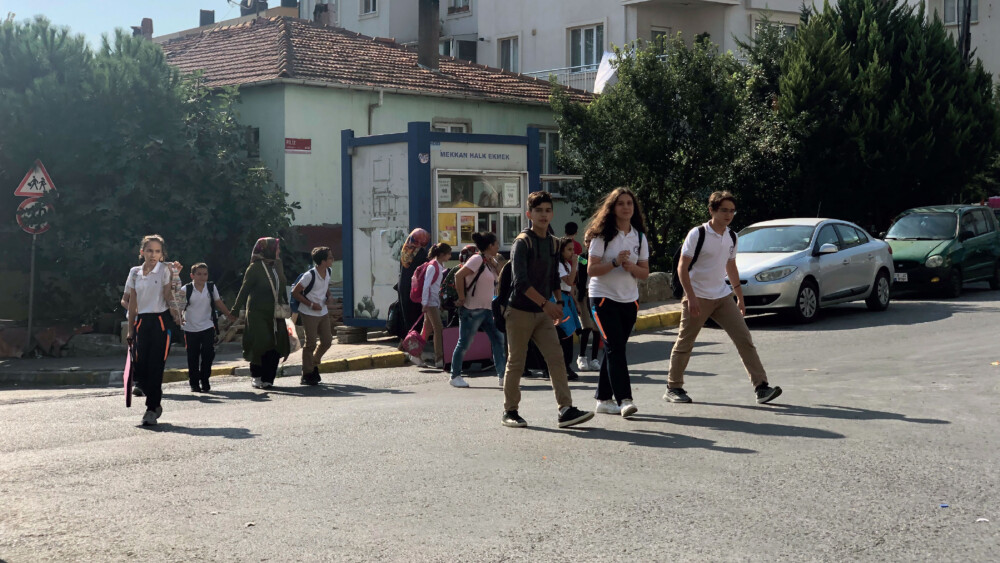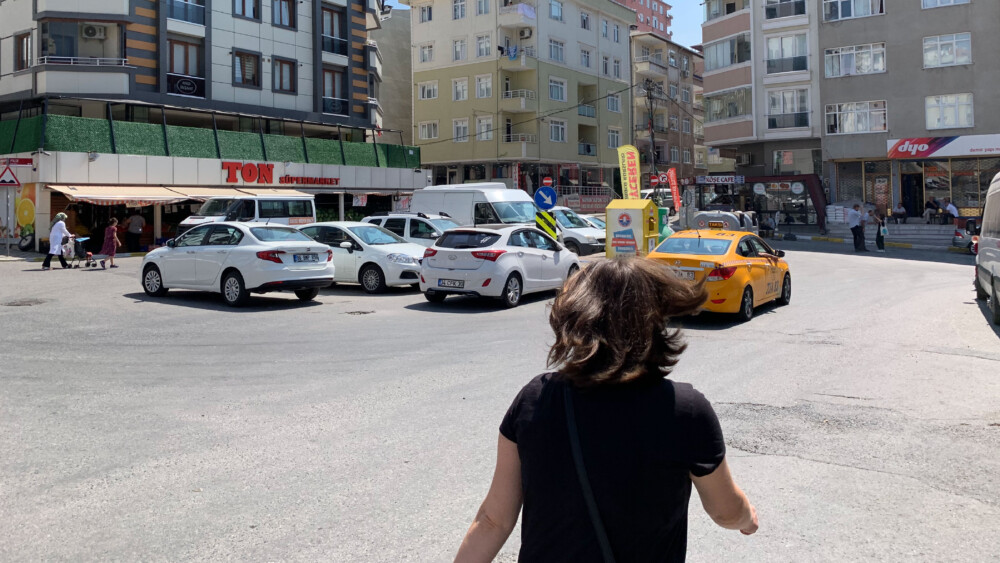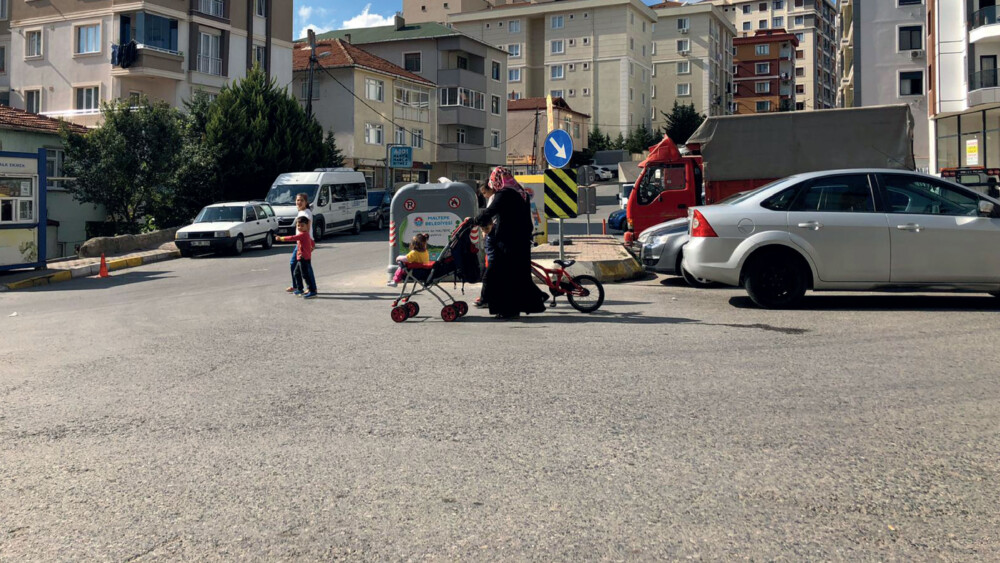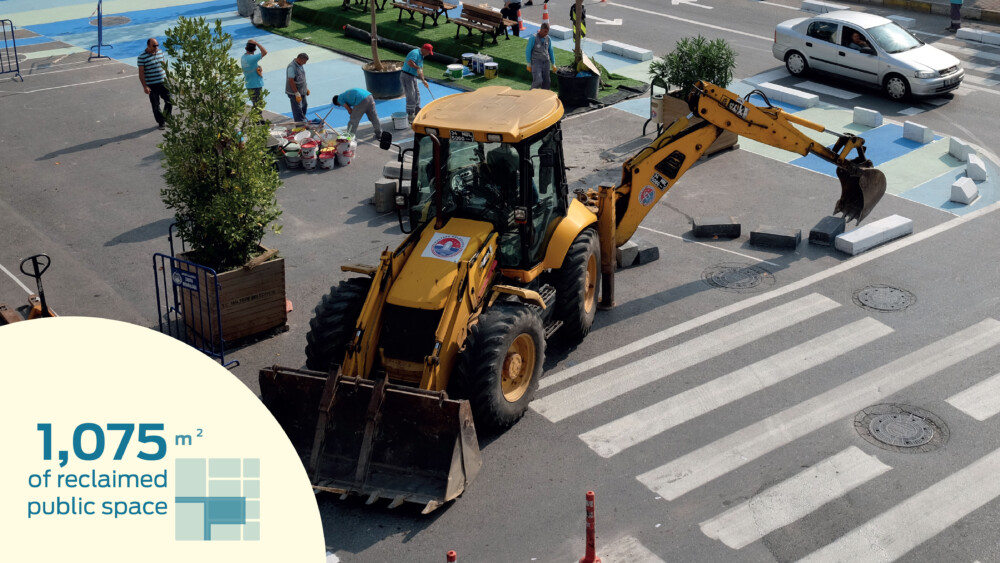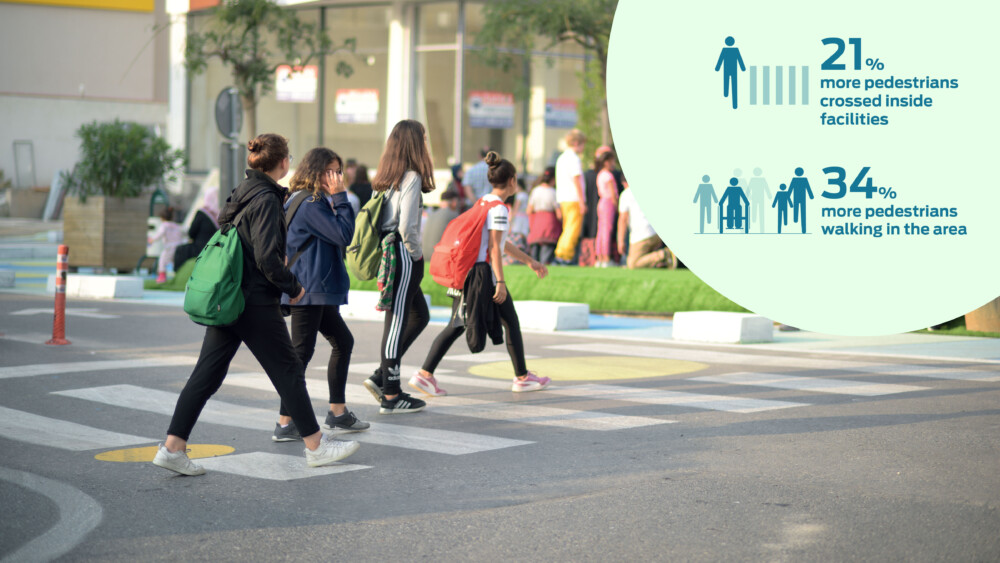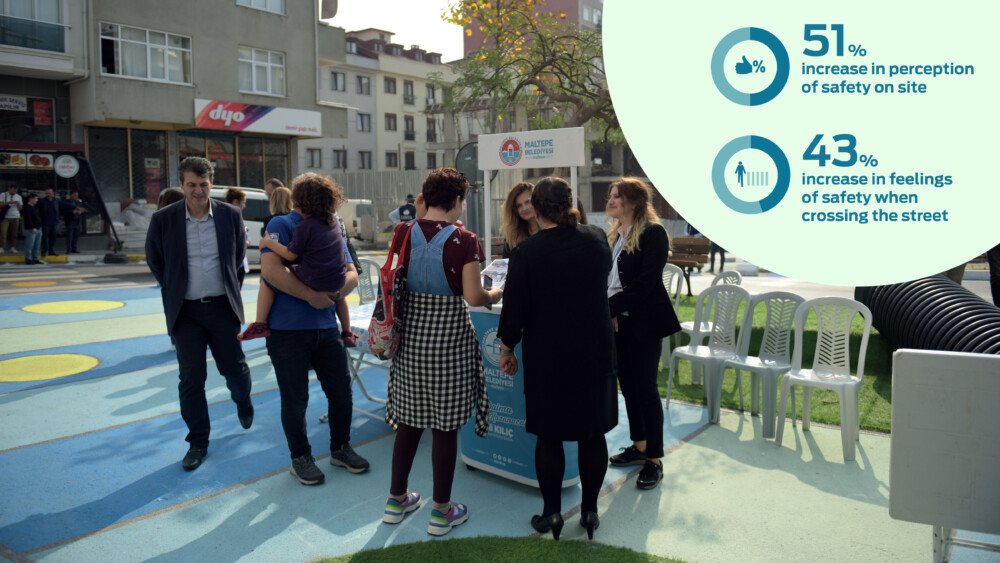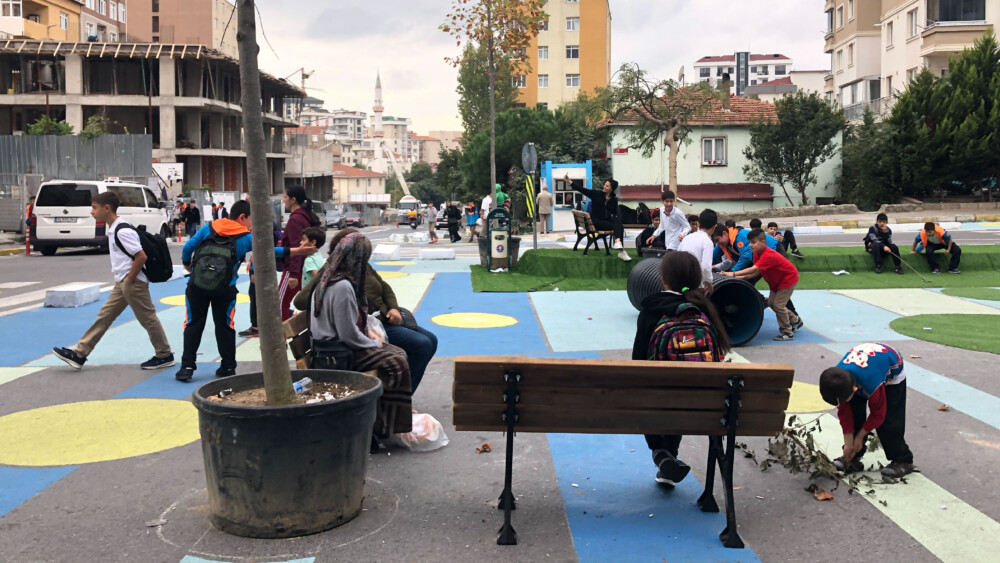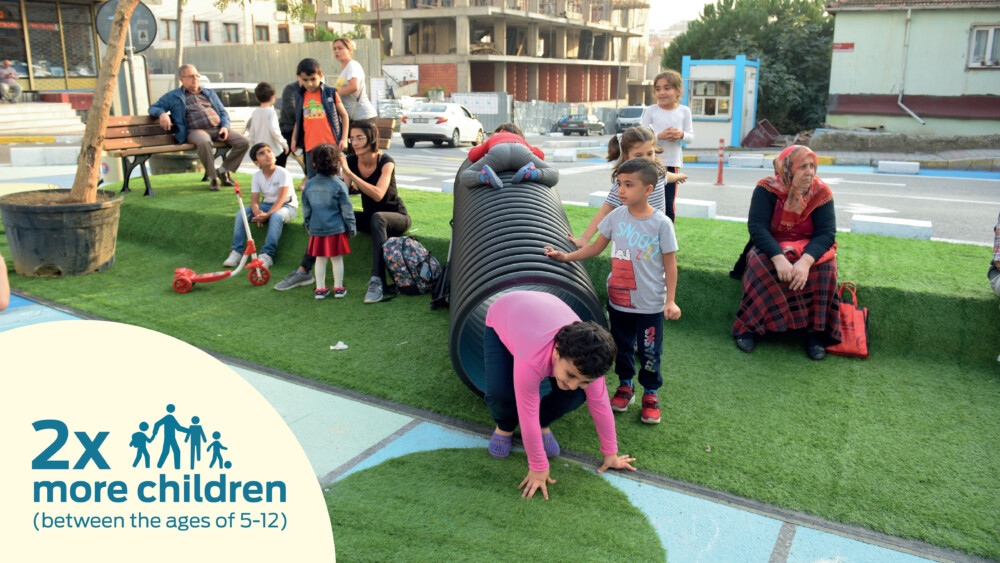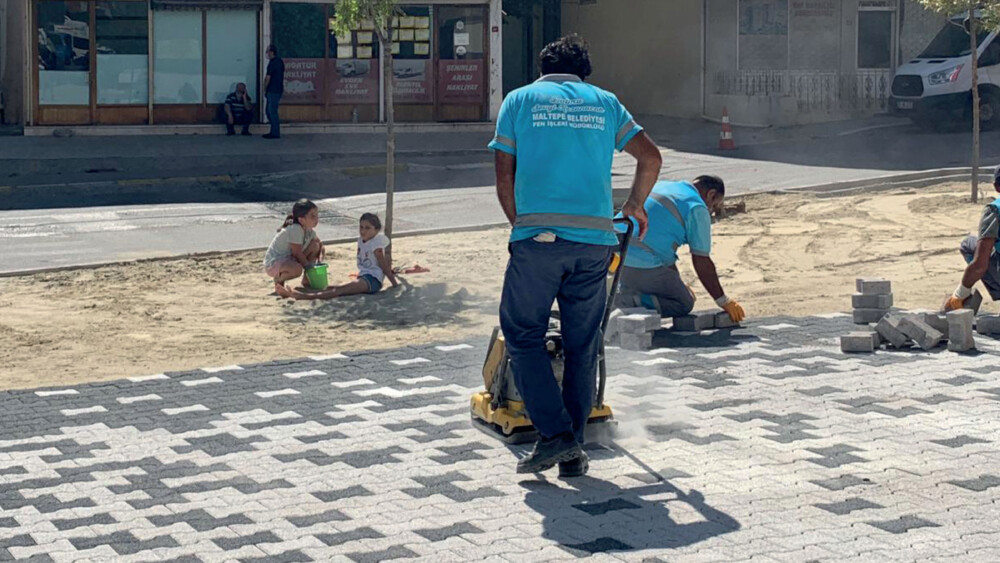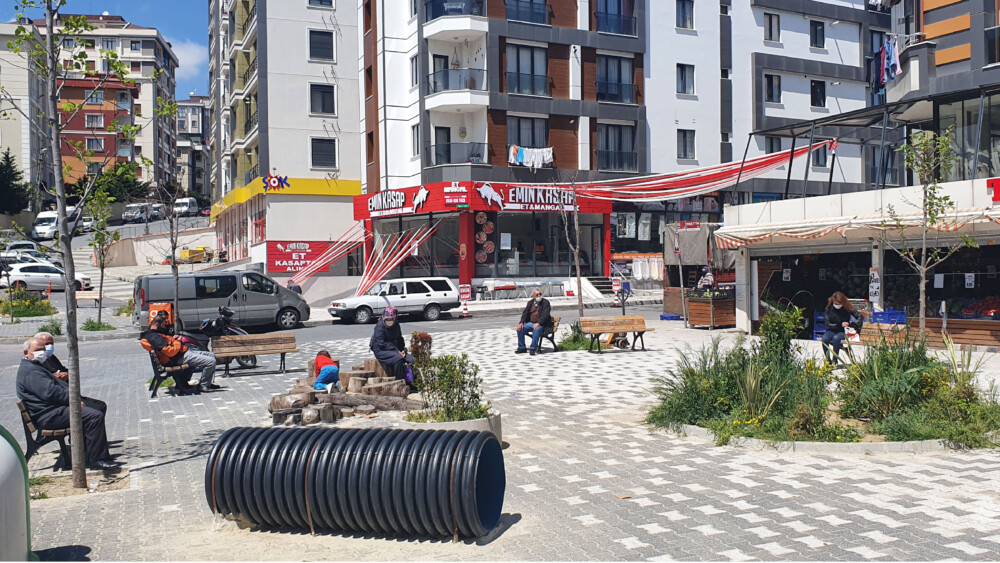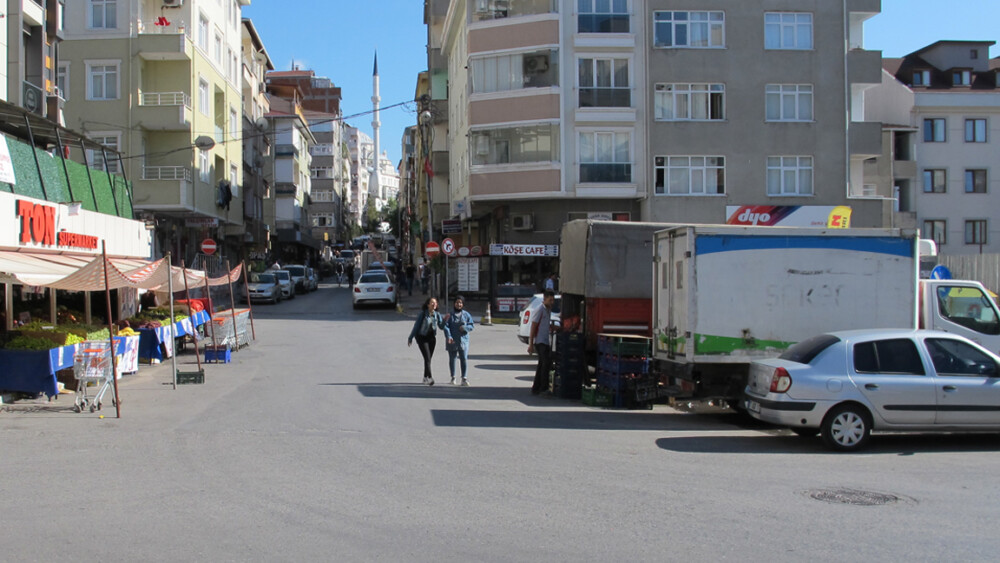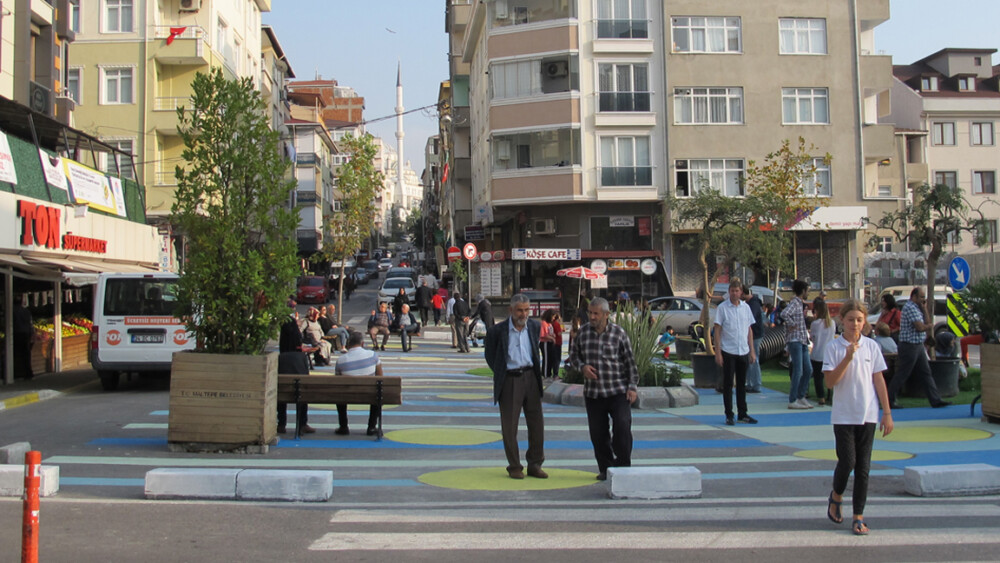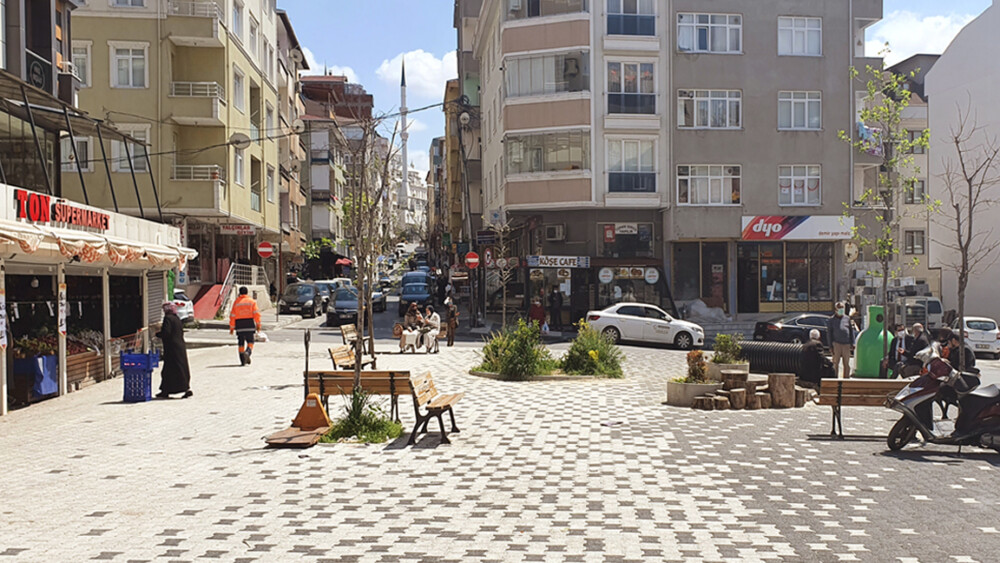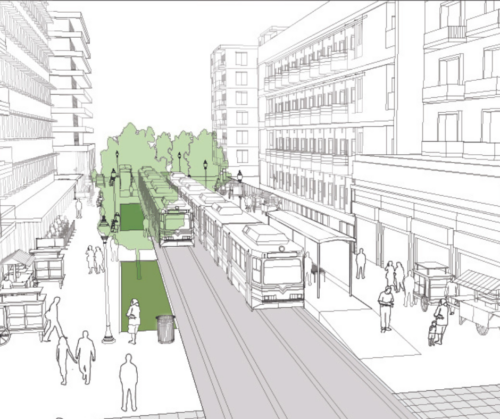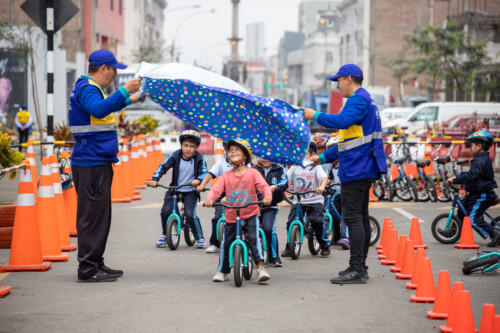Istanbul, Europe’s largest metropolis, has undergone a rapid urban transformation fueled by rural-urban migration and population growth over recent decades, resulting in an intense competition for space. Because of this, it has become more and more difficult for the city to increase access to open spaces and parks, which play a critical role in the physical health and mental well-being of urban residents. Beginning in Spring 2019, NACTO-GDCI worked together with Maltepe Municipality and Istanbul-based design office Superpool as part of the Bernard van Leer Foundation’s Urban95 program to increase available public space in neighborhoods using alternative methodologies.
The process was kicked off with the selection of the program’s priority neighborhoods. Using various equity indicators, Maltepe Municipality conducted a thorough analysis of the district and identified the Zümrütevler neighborhood as a potential intervention area. With a population of 82,650 people, the Zümrütevler neighborhood is one of the densest areas of the Maltepe district. In 2019, about 8 percent of the population in Zümrütevler was between the ages of 0 and 4 years old. An additional 22 percent of the population was between the ages of 5 and 19 years old. Despite these high numbers, the neighborhood lacked amenities such as parks and playgrounds, which encouraged the municipality to explore alternative ways to create safe and attractive open spaces.
Within the neighborhood, the Municipality identified a busy intersection that is along the route to several schools in the area. The space had high pedestrian activity, especially during school drop-off and pick-up hours, due to the transit stops and commercial businesses surrounding the space. In spite of these conditions, the majority of the space was allocated to motorized vehicles, and the lack of pedestrian infrastructure created dangerous conditions for kids and caregivers.
With design and metric-collection support from NACTO-GDCI, the team in Istanbul envisioned the intersection to be a social space while making traffic more intuitive and predictable for those passing through. Before the interim intervention, a parking median ran down the center of the street and pedestrian infrastructure was poorly maintained or non-existent. In the proposal, parking was removed, and the median space was merged with the sidewalk on one side of the street to create space for the new neighborhood plaza. The remaining travel lanes still allow for two-way vehicular traffic with reduced speeds due to tightened corner radii and narrower lanes.
In addition to safety improvements, the new plaza at the intersection has given kids a place to play other than crowded streets. The team found creative ways to incorporate materials like artificial turf and plastic drainage pipes into the design as play elements while providing seating areas that invite families to sit and enjoy a restful break.
Before Conditions > Interim Intervention:
[twenty20 img1=”30558″ img2=”30563″ offset=”0.5″ before=”Before Conditions” after=”Interim Intervention”]
Image Credits: Dipnot TV & Emre Dorter
The interim design was implemented in October 2019 through a series of workshops in which neighborhood residents took an active role. The team on the ground especially encouraged kids and youth to participate in these workshops and provided them an opportunity to shape their neighborhoods through street design. The inauguration of the interim plaza was celebrated with programmed activities throughout the day: children enjoyed playing games while adults stopped by the informational kiosks to learn more about road safety and the design process. The district municipality staff engaged with the residents during the day and got their feedback about what could be improved for the capital construction project.
Following the inauguration of the new plaza space, the team continued to collect metrics and engage with the stakeholders in the neighborhood. In the weeks that followed the implementation, there was a 72% increase in the number of people spending time in the space. According to the observations at the site, there were 3.5 times more babies and toddlers spending time at the site, as well as a two-fold increase in kids aged between 5 and 12.
Overall, it was observed that there was a 43% increase in children using the streets independently. The surveys conducted at the site before and after showed that there was also a 43% decrease in the number of people who felt unsafe crossing the intersection.
While the general response from the residents was overwhelmingly positive, the team also took negative feedback into consideration. Dolmuş (a form of collective transport) drivers, for example, had complaints related to illegal parking as well as their drop-off locations. These concerns were addressed through negotiations, and solutions were found collectively. The design team engaged residents of Zümrütevler in the community stewardship of local public spaces and raised awareness around early childhood development through events like pop-up playgrounds and book club sessions with kids. The new identity of the space fostered a sense of community ownership, and several business owners in the area periodically informed the district municipality about maintenance needs.
In the months following the implementation, the team started planning for the plaza’s capital construction project, but the emergence of the COVID-19 pandemic in March 2020 forced the municipality to pause the process. During the first months of the pandemic, residents of the neighborhood started to care much more about the accessibility of open space, and the plaza became a safe haven for people of all ages to safely socialize and get fresh air. The plaza was not only a favorite resource amongst kids, but its popularity also increased dramatically among the neighborhood’s elderly residents because of the curfews that limited the mobility of people over 65. This newly formed demand for open space galvanized supporters to pursue eventual permanent construction.
As the country started to take appropriate steps to control the spread of COVID-19, the municipality decided to resume the work, and the capital construction project began in October 2020. The interim design was revised according to community feedback and the permanent design reconstructed the majority of the roadbed, including sidewalks. The reconstruction used simple, standard materials for easier maintenance, including more permanent play and seating elements. The municipality also engaged its parks department in the process in order to ensure that plants and trees meet the requirements.
With its steep topography, narrow sidewalks, and aggressive drivers, navigating Istanbul as a pedestrian can be a challenging task. But Istanbulites have always brought life to their streets and no street in Istanbul is empty. The transformation of Zümrütevler demonstrated how the vibrancy of Istanbul’s public spaces can be supported with safe infrastructure and how residents can take an active role in transforming their urban environment. More neighborhood plaza projects are in the works and our team is looking forward to seeing more examples in near future.
——————–
This collaboration between NACTO’s Global Designing Cities Initiative, Maltepe Municipality and SUPERPOOL is made possible thanks to generous support from the Bernard van Leer Foundation. A detailed project report written by Superpool can be accessed and downloaded for free through this link.
Written by Hayrettin Günç
Designed by Kat Gowland
Please contact hayrettin@nacto.org with inquiries related to this project.
——————–
